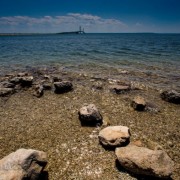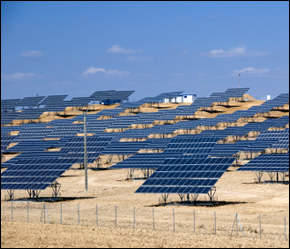Haitian Earthquake Provides Lessons for Similarly Vulnerable Countries
Mediterranean country Malta might need to protect its aquifers for emergency situations, water expert says.
As recovery efforts in Haiti focus on supplying clean water to a region in which the water infrastructure was destroyed, a Maltese engineer thinks his earthquake-prone country, which sits just south of Sicily, could face a similar crisis.
Marco Cremona, an hydrologist and water consultant, said his home country should take note of Haiti’s problems and change its water management policies to prepare for such a disaster.
“Malta needs to reduce its dependence on aquifers not only for environmental reasons but mostly for strategic reasons,” said Cremona, the Times of Malta reports.
“Our island is in a seismic region. What would happen if an earthquake struck and our water supply was cut? If our aquifer was intact, all we would need was a rig and a generator to produce clean water,” Cremona said at an environmental conference last week.
Malta, a chain of three islands 60 miles south of Italy, has poor water governance and limited freshwater supplies, a 2006 Food and Agriculture Organization (FAO) report states.
It is one of the most densely populated countries in the world and the island’s urban residents rely on desalinated water for more than half of their drinking supply. Even though desalinated water has ensured a steady flow, low tariffs have encouraged a wasteful water culture, according to the FAO.
Agriculture is increasingly dependent on groundwater, which is unregulated and free for farmers after drilling costs, the FAO report states. As a result water is being withdrawn twice as quickly as it is being replaced, according to Cremona.
Salt water is infiltrating the karst limestone aquifers as the level of freshwater declines. In addition, water is being contaminated with nitrates from excess fertilizer use and livestock waste run off.
Cremona would like to see Malta shift toward wastewater recycling for agricultural use and rainwater harvesting in urban areas. As a result, less pressure would be placed on the aquifers and more water would be available as an emergency reserve.
More than a quarter of the country’s annual urban domestic demand could be met if each building included a 25 cubic meter cistern, according to the FAO report.
Complacency in public attitudes is one reason for the lack of reform, some experts say.
No serious damage from an earthquake in Malta has occurred in the last century. No building code exists to ensure buildings can stand up to tremors, even as their height and density increases, according to a paper by Pauline Galea, a physics professor at the University of Malta.
Source: Times of Malta
Brett writes about agriculture, energy, infrastructure, and the politics and economics of water in the United States. He also writes the Federal Water Tap, Circle of Blue’s weekly digest of U.S. government water news. He is the winner of two Society of Environmental Journalists reporting awards, one of the top honors in American environmental journalism: first place for explanatory reporting for a series on septic system pollution in the United States(2016) and third place for beat reporting in a small market (2014). He received the Sierra Club’s Distinguished Service Award in 2018. Brett lives in Seattle, where he hikes the mountains and bakes pies. Contact Brett Walton








Leave a Reply
Want to join the discussion?Feel free to contribute!